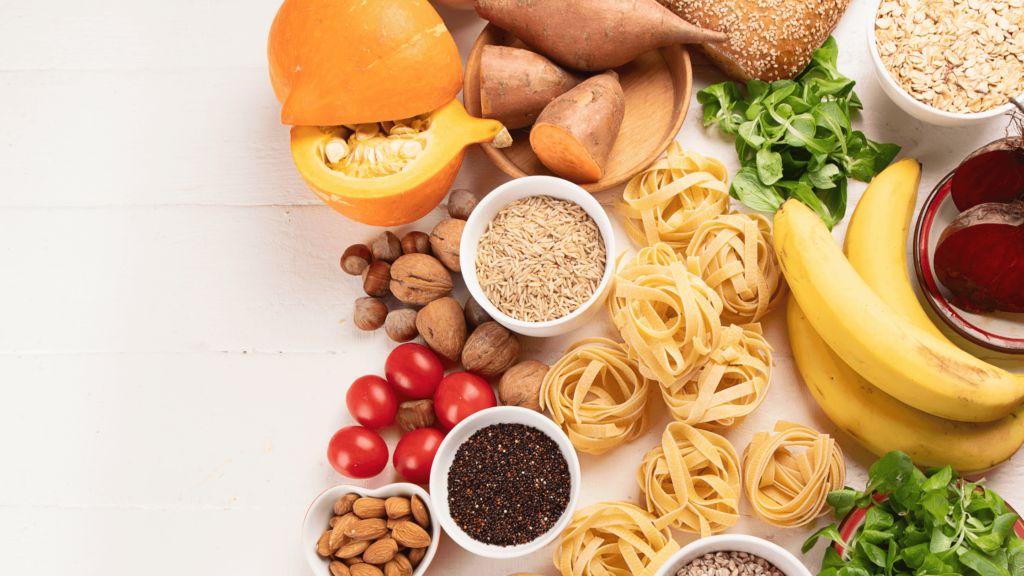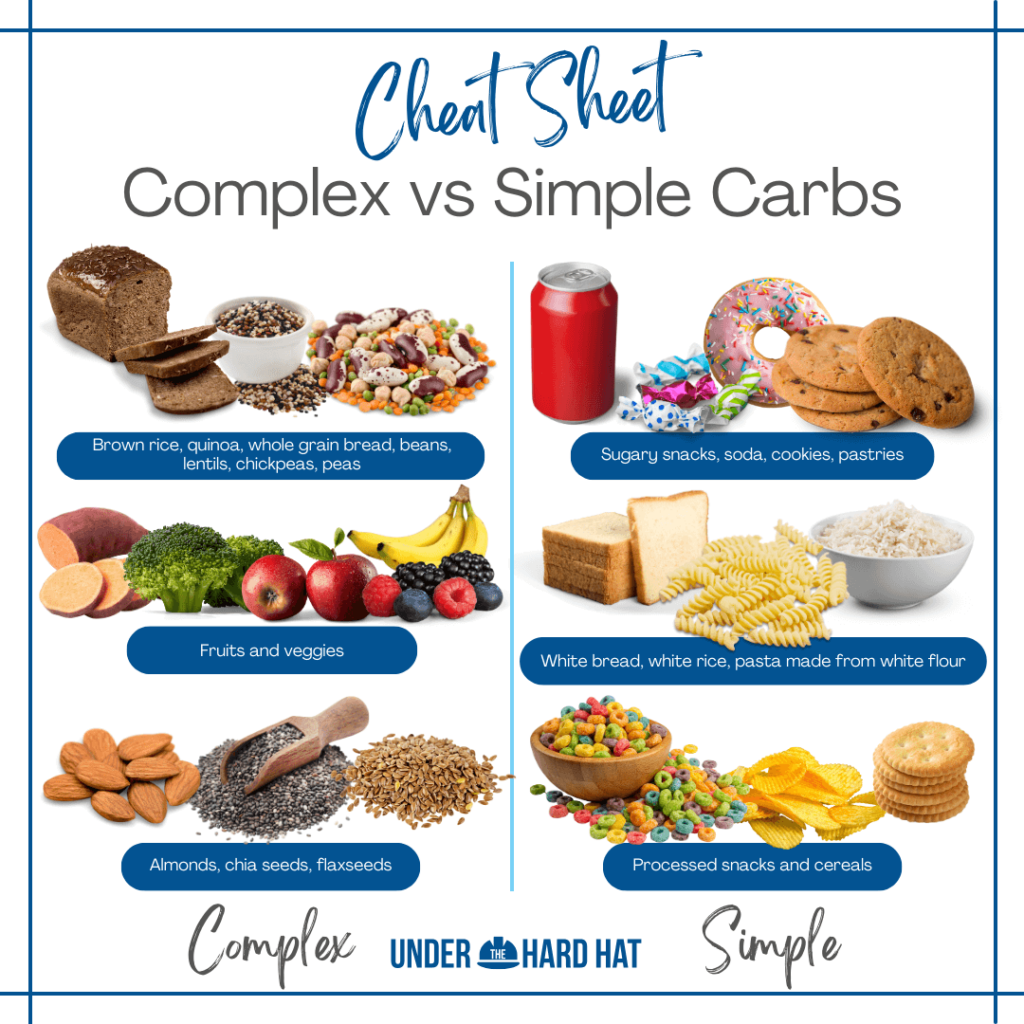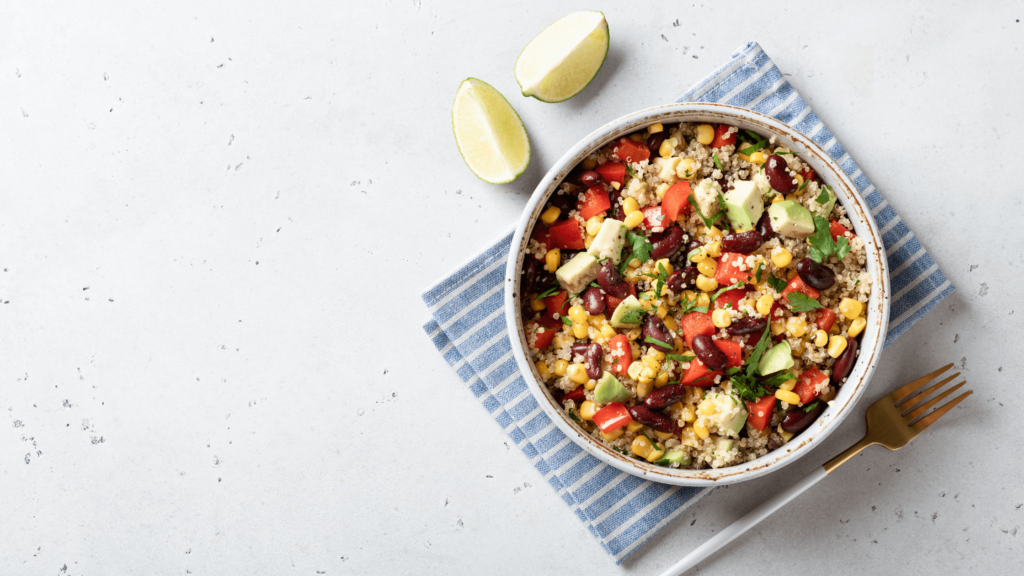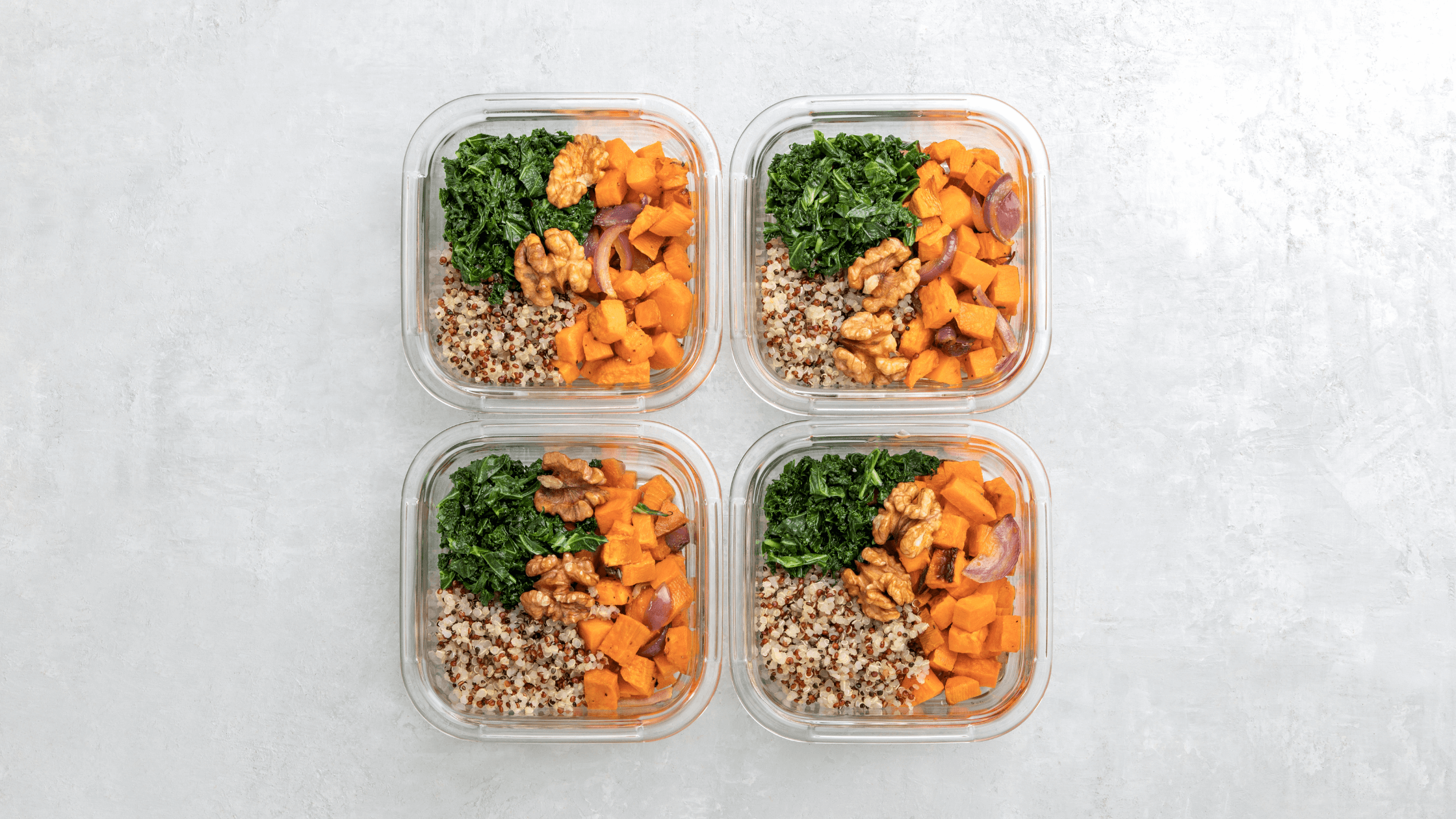Construction work is physically demanding, so you need a steady fuel supply to keep going. Eating right is key to having the energy you need, and adding complex carbohydrates to your diet can make a huge difference. Complex carbs like oats, brown rice, and sweet potatoes are more nutrient-dense than simple carbohydrates, helping you stay energized, focused, and productive throughout the day.
A bad diet feels… bad
Eating right is critical to staying productive and feeling good on the job. If you’re not fueling your body properly, it’s easy to get worn down and burnt out. A poor diet can make you tired and sluggish, making it hard to focus and get your work done efficiently and safely. This ultimately hits your productivity, and that’s a lose-lose for everyone.
Studies show that what you eat directly impacts your work performance. For example, one study found that workers who ate balanced meals had higher energy levels and better concentration throughout the day.
So, what does a balanced meal look like? It’s pretty straightforward: include some protein, carbs, healthy fats, and vegetables. That’s a meal that will keep you powered up and ready to tackle whatever the day throws at you.
The lowdown on carbs

Carbs get a bad rap, especially if you’re trying to lose weight. You might have heard cutting carbs is the key to shedding pounds, but that’s not the whole story. For anyone doing physical labor, like construction work, carbs are essential. They are your body’s primary energy source, helping you power through those long work days. Without enough carbs, you might run out of steam halfway through the day.
So, let’s clear up the confusion and give carbs the props they deserve.
Not all carbs are created equal
There are two main types: simple carbs and complex carbs. Simple carbs are in sugary snacks, white bread, pasta, and soda. They give you a quick energy fix but can also cause you to crash just as fast.
Complex carbs are the real MVPs for anyone doing physical work. These are found in whole grains, beans, vegetables, and fruits. Complex carbs are higher in fiber and take longer to break down, providing a steady stream of energy that keeps you going throughout the day. Plus, they keep you feeling full longer and are packed with essential nutrients your body needs to function at its best.
Simple vs. complex carbs
| Simple carbs | Complex carbs |
| Candy and sweets | Whole grains (brown rice, oats) |
| White bread | Beans and legumes |
| Sugary cereals | Vegetables (sweet potatoes, broccoli) |
| Soda and sugary drinks | Fruits (apples, berries) |
Sure, simple carbs might be okay for a quick snack now and then, but the complex carbs will fuel your workday and keep you feeling great.

Why your body needs carbs
Carbs aren’t just fuel; they are essential to keep your entire body running at peak performance, especially when doing physical work. Here’s why:
1. Energy
Carbs are your body’s primary energy source. They break down into glucose, which fuels your muscles and keeps you going strong throughout the day. Without enough carbs, you’d feel tired and sluggish, making it challenging to get through a demanding workday.
2. Bowel health
The fiber in complex carbs is excellent for your digestion. It helps keep things moving smoothly through your digestive system, preventing constipation and keeping your gut healthy. This means you can focus on your work without any uncomfortable distractions.
3. Muscle growth and maintenance
Carbs play a key role in muscle growth and maintenance. They replenish the glycogen stores in your muscles after a hard day’s work, helping your muscles recover and grow stronger. This is crucial for maintaining your strength and endurance over the long haul, especially as you age.
4. Mental alertness
Carbs do more than just fuel your body—they also help improve your mood and mental function. Eating enough carbs can keep you upbeat and focused, which is important for staying safe and productive on the job site.
Construction workers and carbs

As a construction worker, you burn a ton of energy every day. Carbs are crucial for replacing that energy and keeping you going strong. Without enough carbs, you might feel drained and less focused, slowing you down and making your job harder. Replenishing your energy with the right carbs is essential for maintaining productivity and staying sharp on the job.
Balanced meals
To keep your energy levels up, focus your meals around a balanced mix of protein, carbohydrates, healthy fats, and fruits and vegetables.
Here are some easy, portable, and mess-free lunch ideas that fit perfectly in a lunch box:
1. Quinoa and veggie salad
- Ingredients: Cooked quinoa, cherry tomatoes, cucumber, bell peppers, chickpeas, feta cheese, olive oil, lemon juice, salt, and pepper.
- Why it’s great: Quinoa is a fantastic complex carb that provides sustained energy. The veggies add fiber and vitamins, while chickpeas and feta provide protein.
- Preparation: Mix all ingredients in a bowl and pack in a sealed container. Add dressing just before eating to keep it fresh.
2. Whole grain wrap with turkey and veggies
- Ingredients: Whole grain tortilla, sliced turkey breast, spinach, avocado, shredded carrots, and hummus.
- Why it’s great: Whole grain tortillas provide long-lasting energy. Turkey offers lean protein, and veggies add essential nutrients.
- Preparation: Spread hummus on the tortilla, layer with turkey and veggies, roll it up tightly, and wrap in foil.
3. Brown rice and bean bowl
- Ingredients: Cooked brown rice, black beans, corn, diced tomatoes, avocado, cilantro, lime juice, salt, and pepper.
- Why it’s great: Brown rice and black beans are rich in complex carbs, fiber, and protein.
- Preparation: Combine all ingredients in a bowl. Pack in a lunch container and add lime juice just before eating.
4. Whole wheat pita with chicken and hummus
- Ingredients: Whole wheat pita bread, grilled chicken strips, hummus, sliced cucumber, and shredded lettuce.
- Why it’s great: Whole wheat pita has complex carbs, and chicken provides protein. Hummus and veggies add nutrients (and tons of flavor).
- Preparation: Fill the pita with hummus, chicken, cucumber, and lettuce. Wrap in foil for easy transport.
5. Sweet potato and black bean burrito
- Ingredients: Whole wheat tortilla, mashed sweet potatoes, black beans, corn, salsa, and shredded cheese.
- Why it’s great: Sweet potatoes and black beans are excellent sources of complex carbs and fiber. This burrito is both tasty and nutritious.
- Preparation: Spread mashed sweet potatoes on the tortilla, and add black beans, corn, salsa, and cheese. Roll up and wrap in foil.
6. Lentil and veggie stew
- Ingredients: Cooked lentils, diced carrots, celery, onion, spinach, vegetable broth, salt, and pepper.
- Why it’s great: Lentils are a complex carbs and protein powerhouse. This stew is perfect for a hearty and nutritious lunch.
- Preparation: Cook all ingredients in a pot until veggies are tender. Let cool and pack in a thermos.
How many carbs is enough?
Figuring out exactly how many carbs you need can be tricky, as it depends on your job, physical activity, and overall health. However, a rough estimate for active laborers is about 45-65% of your daily calories should come from carbohydrates.
If you burn a substantial amount of energy each day, this could translate to around 225-325 grams of carbs if you’re eating about 2,000 calories a day. If your work is extremely physically demanding, you may need more.
General recommendations
Here are some general guidelines to help you figure out how many carbs you might need:
- Light activity: If your job involves light to moderate physical activity, aim for the lower end of the range, around 45% of your daily calories or 225 grams of carbs daily.
- Moderate activity: For moderate activity levels, shoot for the middle, around 55% of total calories or 250-275 grams daily.
- High activity: If your job is very physically demanding, go for the higher end, around 65% of total daily calories or 300-325 grams per day or more.
Remember, your individual needs might vary, so it’s a good idea to pay attention to how your body feels and adjust your intake as needed. You might need to increase your carb intake if you feel tired or sluggish after a meal. Conversely, if you’re feeling overly full and in need of a nap after meals, you might need to cut back a bit.
So, next time you’re planning your meals, make sure to load up on complex carbs. Add whole grains, beans, vegetables, and fruits to your plate to keep your energy high and your performance top-notch. Your body will thank you!



3 comments